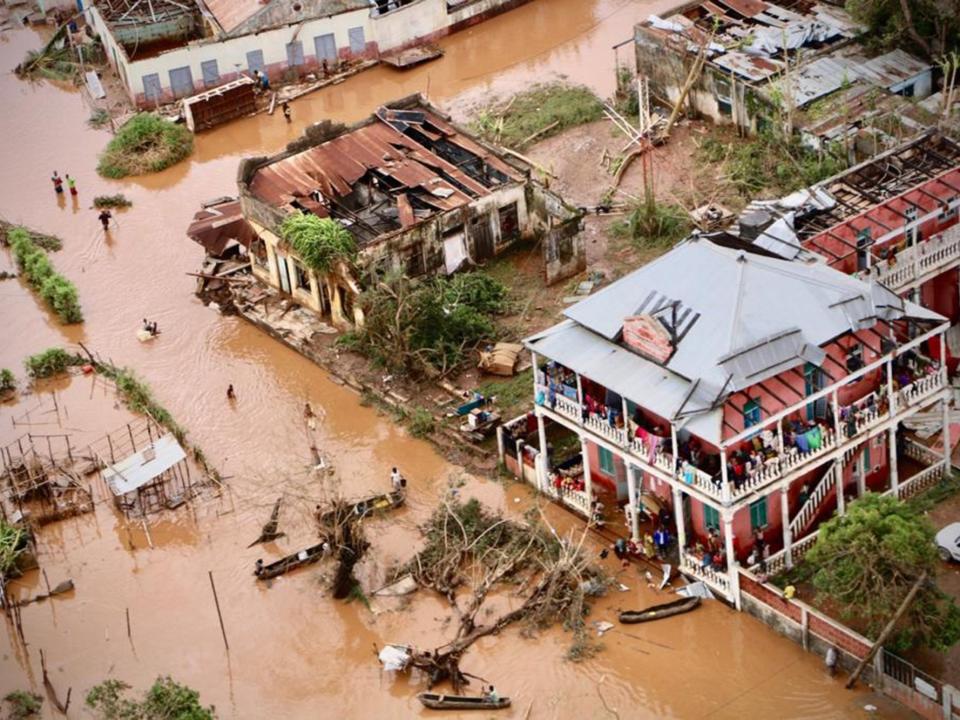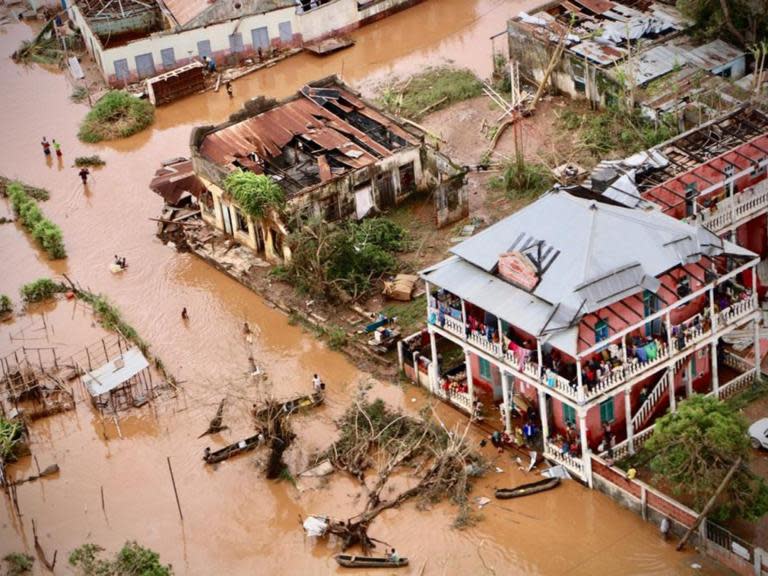Cyclone Idai has wreaked havoc on the other side of the world – and yet no one in the west seems to care
Cyclone Idai has caused unimaginable levels of devastation in Southern Africa. Mozambique, Zimbabwe and Malawi have all been seriously affected by the disaster, and rising flood levels pose a further threat. Clare Nullis, from the UN, informed the BBC, “This is shaping up to be one of the worst weather-related disasters ever to hit the southern hemisphere.”
There’s still little clarity on the exact figures, but Mozambique's President Filipe Nyusi believes that more than 1,000 people may have been killed since the cyclone hit last week (yesterday the official death toll was over 200, more than double that of the day before). According to the UN, at least 600,000 people are in need of aid.
But you’d be forgiven for not even realising that these horrors were occurring on the other side of the world. The coverage of the devastation has been surprisingly minimal, despite the shocking statistics.
Here in Britain, we’ve barely engaged with the developing disaster. There has been news coverage, but the story isn’t dominating headlines or shaping the national conversation. Our collective concern has been disproportionately low.
It’s difficult to pinpoint exactly why this is the case. Is it because it’s difficult to emotionally connect with a string of statistics, no matter how horrific their implications are? Maybe. But we don’t seem to want to give this story an accessible, human face. There have been accounts of stranded women trapped in trees, “throwing their babies” onto rescue boats. Aid-workers speak of pulling people out from head-deep water. This is real-life dystopia; it’s a terrible, actualised nightmare. These anecdotal details, so deeply upsetting, still don’t seem to elicit our attention.
It goes without saying that if a tragedy of such gargantuan proportions occurred in the western world, the response would be colossal. There would be fundraisers and rolling news reports – it would be ever-present in social and political conversation.
But there’s a huge disparity between how we handle trouble that happens close to home, and how we process disasters that occurs elsewhere.
Of course, it’s hardly surprising that humans care more about issues that make them feel personally under threat. It’s just transparent, evolutionarily ingrained self-interest. A terror attack in France will rattle Britain more than a similar incident in Pakistan, partly because it’s just a Eurostar away. But we’d be kidding ourselves if we didn’t acknowledge that this feeling of closeness is about more than proximity.
As a country, we tend to treat the suffering of people in what we’d describe as “developing” nations in one of two ways. Either we’re sensationalising their trauma, turning their complicated narratives into simplified issues that we feel able to solve by hastily slotting ourselves into the role of saviour, or, we’re turning a blind eye to the difficulties that feel so far away from us, literally and figuratively.
We need to take a more nuanced approach to the triumphs, trials and tragedies of black and brown-skinned people abroad. Rather than ignoring or co-opting the issues that affect them, we need to start thinking about why we’re so desensitised to their suffering and why we’re so indifferent to their successes.
We need to take a more egalitarian approach to international disasters, not just because it’s morally right, but because it’s desperately pressing. The countries that are most imminently and seriously at risk from the effects of climate change – Malawi, Bangladesh, the Philippines, Vietnam – have to be on our radar before it’s too late.
Emotional engagement is more motivating than abstracted concern. If we don’t start feeling the immense value of these human lives, we won’t make the changes we need to be making on an individual, national, and international level, to prevent future humanitarian disasters.
Our empathy needs to be unlocked; our interest needs to be mobilised. Soon, stories like this one will become impossible to ignore.


